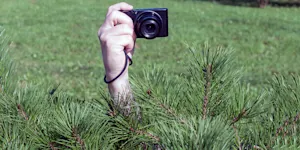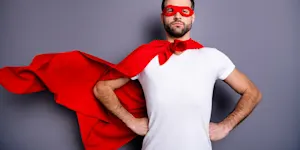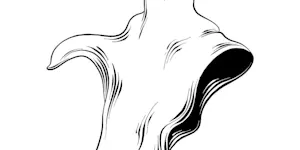What Makes This Word Tick
The word "diegetic" is a treasure trove of narrative creativity, often used in the realm of storytelling, particularly in films and literature. It describes elements that exist within the world of the story itself — like a character listening to music on a radio which both they and the audience can hear. It's your secret password into understanding how stories are constructed to feel more authentic and immersive.
If Diegetic Were a Person…
Imagine Diegetic as a particularly insightful director, always focused on ensuring the audience stays anchored in the story. They wear vintage glasses, constantly peruse scripts, and occasionally hum tunes that characters in their film might dance to.
How This Word Has Changed Over Time
"Diegetic" initially nestled in scholarly discussions about storytelling, but over time, filmmakers and critics alike adopted it for broader use. Nowadays, it's popped out of textbooks and into everyday conversations about how we perceive reality within fiction.
Old Sayings and Proverbs That Use Diegetic
While aphorisms specific to "diegetic" might not fill historical tomes, one could imagine a saying like, "Keep it diegetic, and truth will follow," nodding to the importance of maintaining narrative authenticity.
Surprising Facts About Diegetic
Did you know "diegetic" has a cousin? "Non-diegetic" refers to elements like a movie's background score — those bits the characters don't hear but we do. The divide between these helps filmmakers orchestrate our emotions seamlessly.
Out and About With This Word
When you're chatting with a film buff or catching a lecture at a community college, throwing in the term "diegetic" might just earn you a nod of respect. It's a handy term for discussing what makes your favorite shows feel so captivating.
Pop Culture Moments Where Diegetic Was Used
In Quentin Tarantino's "Pulp Fiction," when the radio plays "Son of a Preacher Man," that's diegetic sound. The music playing in-scene adds a layer of connection between the audience and the world the characters inhabit.
The Word in Literature
"Diegetic" often sneaks into scholarly analyses of modern novels, especially those with richly constructed worlds. In the realm of the written word, it might reference dialogue or descriptions that hint at elements within the story's reality.
Moments in History with Diegetic
Consider the advent of sound in film during the late 1920s. That pivotal moment in cinematic history could have easily been branded as the diegetic era, with films finally capturing the sounds of their narrative worlds.
This Word Around the World
In France, the word is "diégétique," carrying the same artistic depth. Across languages, it’s a tool for dissecting what makes art immersive, drawing lines between what’s shared with characters and what’s artificially crafted for audiences.
Where Does It Come From?
This gem comes from the Greek "diēgētikos," meaning "narrative," rooted in "diēgeisthai" (to narrate). It's a term born from storytelling traditions that sought to classify elements within tales.
How People Misuse This Word
It’s easy for people to misuse "diegetic" when they're talking about narrative style rather than the specific sounds or visuals perceived by characters. Keep it focused on elements truly existing within the story world.
Words It’s Often Confused With
Non-diegetic: Often confused due to its direct relation, though it describes elements outside the story's world.
Narrative: Broader in scope, referring to the story as a whole rather than specific elements within it.
Additional Synonyms and Antonyms
While synonyms are rare, the antonym "non-diegetic" is a constant companion, marking the boundary between internal and external narrative worlds.
Want to Try It Out in a Sentence?
The song playing on the car radio was a diegetic element, effortlessly weaving the characters' emotions into the scene more authentically.
















